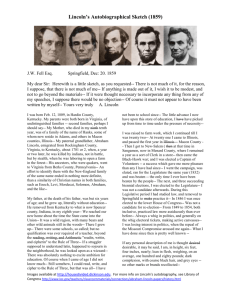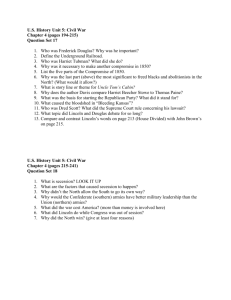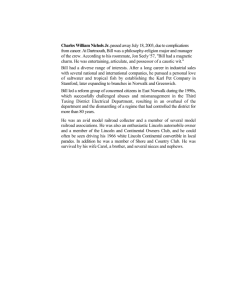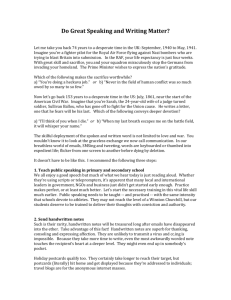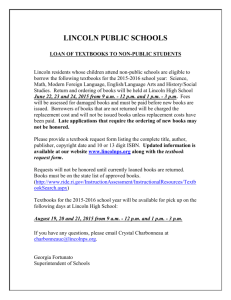John Brown, Abraham Lincoln and the Question of
advertisement
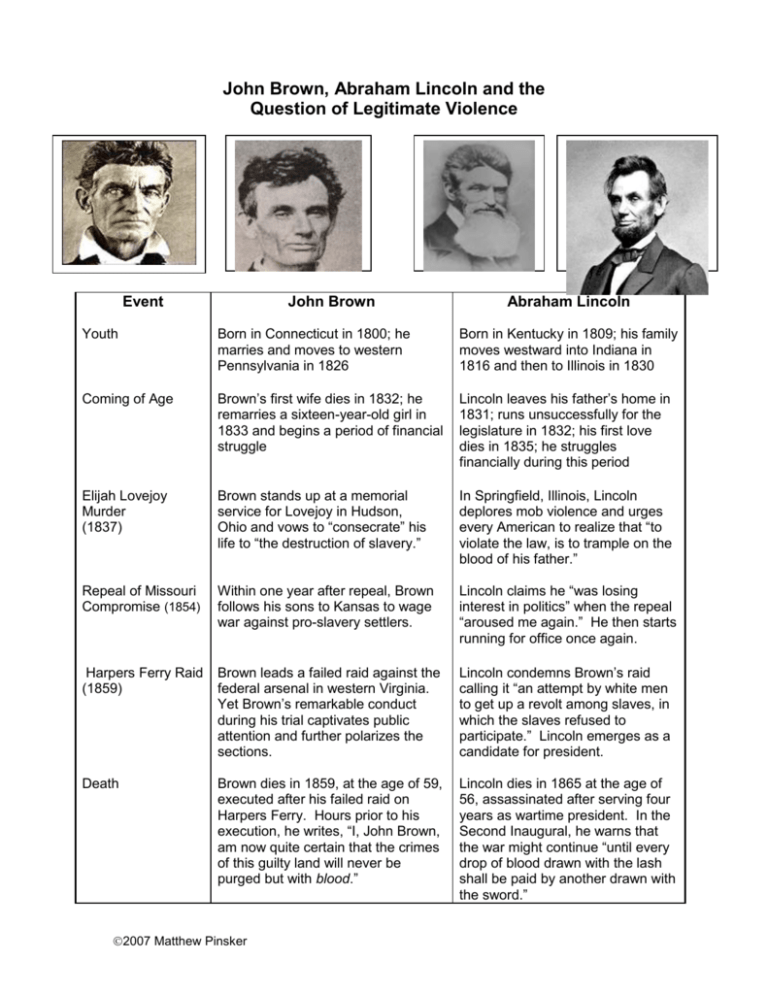
John Brown, Abraham Lincoln and the Question of Legitimate Violence Event John Brown Abraham Lincoln Youth Born in Connecticut in 1800; he marries and moves to western Pennsylvania in 1826 Born in Kentucky in 1809; his family moves westward into Indiana in 1816 and then to Illinois in 1830 Coming of Age Brown’s first wife dies in 1832; he remarries a sixteen-year-old girl in 1833 and begins a period of financial struggle Lincoln leaves his father’s home in 1831; runs unsuccessfully for the legislature in 1832; his first love dies in 1835; he struggles financially during this period Elijah Lovejoy Murder (1837) Brown stands up at a memorial service for Lovejoy in Hudson, Ohio and vows to “consecrate” his life to “the destruction of slavery.” In Springfield, Illinois, Lincoln deplores mob violence and urges every American to realize that “to violate the law, is to trample on the blood of his father.” Repeal of Missouri Compromise (1854) Within one year after repeal, Brown follows his sons to Kansas to wage war against pro-slavery settlers. Lincoln claims he “was losing interest in politics” when the repeal “aroused me again.” He then starts running for office once again. Harpers Ferry Raid (1859) Brown leads a failed raid against the federal arsenal in western Virginia. Yet Brown’s remarkable conduct during his trial captivates public attention and further polarizes the sections. Lincoln condemns Brown’s raid calling it “an attempt by white men to get up a revolt among slaves, in which the slaves refused to participate.” Lincoln emerges as a candidate for president. Death Brown dies in 1859, at the age of 59, executed after his failed raid on Harpers Ferry. Hours prior to his execution, he writes, “I, John Brown, am now quite certain that the crimes of this guilty land will never be purged but with blood.” Lincoln dies in 1865 at the age of 56, assassinated after serving four years as wartime president. In the Second Inaugural, he warns that the war might continue “until every drop of blood drawn with the lash shall be paid by another drawn with the sword.” 2007 Matthew Pinsker

